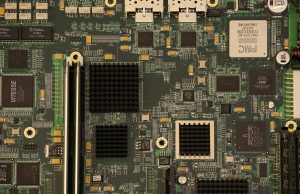How AI is Revolutionizing Autonomous Car Development
The development of self-driving cars, also known as autonomous cars, has been a hot topic in the tech industry for the past decade. This revolutionary technology has the potential to completely transform the way we commute and travel, making it safer, more efficient, and more convenient. However, one key player in this advancement is AI – artificial intelligence. In this article, we will explore how AI is revolutionizing and shaping the future of autonomous car development.
The Rise of AI in Autonomous Car Development
Artificial intelligence, or AI, is the branch of computer science that focuses on creating intelligent machines that can think and act like humans. AI technologies such as machine learning, natural language processing, and computer vision have seen tremendous growth and advancements in recent years. These advancements have paved the way for autonomous car development, which heavily relies on AI to operate.
Enhancing Perception and Sensing Abilities
The development of self-driving cars requires complex decision-making capabilities and a high level of accuracy in various driving situations. This is where AI comes in. By using cutting-edge perception and sensing technologies, self-driving cars are able to detect and process information from their surroundings, making them capable of safely navigating through different types of environments and road conditions.
Through the use of sensors such as radars, lidars, and cameras, self-driving cars are constantly gathering data and feeding it into AI algorithms. These algorithms then analyze and interpret the data to create a comprehensive understanding of the car’s surroundings, including other vehicles, pedestrians, traffic lights, and road signs. This allows the car to make informed decisions and adapt to its environment in real-time.
Improving Decision-Making and Problem-Solving Skills
The ability to make split-second decisions and adapt to unpredictable situations is crucial for a safe and successful autonomous car. AI plays a vital role in this aspect by using its immense processing power and deep learning capabilities. Through continuous learning and analysis of data, AI algorithms become more accurate and efficient at making decisions, improving the overall performance of self-driving cars.
Furthermore, AI enables autonomous cars to employ advanced computing techniques such as predictive modeling and simulation to anticipate and handle potential hazards on the road. This not only ensures the safety of passengers but also minimizes the risk of accidents on the road.
Enabling Communication and Connectivity
With the rise of the Internet of Things (IoT), connectivity has become an integral part of our daily lives. Similarly, AI-powered self-driving cars are designed to utilize this connectivity to communicate with other cars, infrastructure, and even pedestrians. This enables them to share vital information such as traffic conditions, accidents, and roadblocks, allowing for smoother and more efficient navigation.
Moreover, with the help of AI, self-driving cars have the capability to communicate with their passengers, making the ride more personalized and comfortable. AI-powered voice assistants can understand natural language and respond to passengers’ requests, making the driving experience more interactive and enjoyable.
Challenges and Opportunities for AI in Autonomous Car Development
Data Privacy and Security Concerns
As with any technology that relies on extensive data collection, data privacy and security concerns are always raised. With self-driving cars continuously collecting and transmitting data, there is a risk of sensitive information falling into the wrong hands. To address this issue, car manufacturers and AI developers need to ensure that proper data encryption and protection measures are in place.
Lack of Standardization and Regulations
As this technology is still in the development phase, there is a lack of standardization and regulations in place for AI-powered autonomous cars. This poses a challenge for car manufacturers and AI developers to navigate through varying regulatory requirements and standards in different countries and regions. However, this also provides an opportunity for collaboration between government bodies, car manufacturers, and AI developers to establish a unified standard for this technology.
Continuous Advancements in AI
As AI is still evolving and developing at a rapid pace, there is always room for improvement and advancement. This presents an opportunity for continuous growth and enhancement in the capabilities of self-driving cars. As AI technologies continue to advance, we can expect even more sophisticated and intelligent autonomous cars in the future.
Conclusion
AI has undoubtedly played a significant role in the development of self-driving cars, making them smarter, safer, and more efficient. However, as with any technology, there are challenges and opportunities that come with it. By addressing these challenges and embracing the opportunities, we can unlock the full potential of AI in revolutionizing autonomous car development and making our roads safer for everyone.











